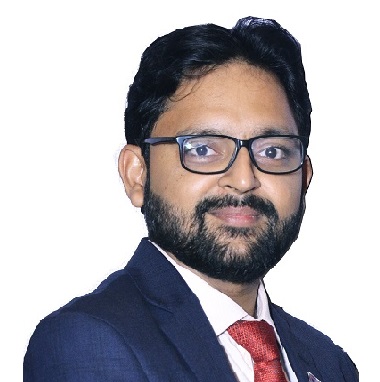The measurement of Social Impact of corporates has travelled beyond statute and attained a special status in the context of ESG Reporting. The journey from employee welfare to employee wellbeing, ensuring dignity and respect at workplace and right to upskill has been long endured by generations of professionals and each member of the corporate fraternity has played a remarkable role in its evolution.
The centripetal point around the entire discussion has and will always be ‘Freedom’. Freedom to choose the career path, to learn new skills, and to offer the best to the organization, without facing any bias or discrimination; this also upholds the spirit of Article 15 of the Indian Constitution.
Diversity, Equity, Inclusion and Sensitivity (DEI) is an umbrella term that is devised to direct our attention towards a healthier and more open corporate culture that provides access to equal opportunity to the people irrespective of their class, caste, dialect, gender, creed, physical attributes etc.
ESG frameworks are evolving faster than anticipated currently, and companies are adopting these frameworks in the most remarkable manner, owing to the tangible benefits that tag along.
Diversity while hiring put simply is, “whoever can do the job, should get the job”, be it a man, a woman, a senior citizen, a gen-z, a millennial, a transwoman, transman, bisexual, irrespective of caste, class creed etc. Including anybody and everybody in the organization, would bring perspectives that would help in multiple ways such as sharpening of the decision making, smartness in thinking process, learning, growth, right mannerism, progressive and fast forward approach, right aggression required to complete the task, strong collaboration with a hint of healthy competition, and more.
Looking at the larger picture, more than about sexuality and orientation, it is the professional conduct that needs to be set right for everyone.
While it is appreciable that the orientation of every individual is a matter of personal choice, and biological circumstances, under either of the instances, it has nothing directly to do with public interest and neither does this community of individuals pose threat to the spirit of law per any scientific evidence. It is also proven on records that sexual orientation has no direct, indirect or ancillary impact on the general intelligence of a human being and that people with homosexual attributes or even transgenders are equally capable to perform as heterosexuals, intellectually.
Though this community does not require validation of any kind, yet it is important that we empathise with their existence, and acknowledge their origin by;
Tracing the roots of inclusion of various Sexual Orientations- The LGBTs have been an integrated part of Sanatan Culture, A culture existing since and beyond the existence of time (Adi Anant Kaal).
The sacred Shastra, Kama Sutra – elucidated by one the greatest Sages of all times Vatsayana, lucidly explains the process of shifting sexualities and seeking pleasure from various means of social, interpersonal and sexual conduct. Kama Sutra is a shastra that discusses the concept of love making (Heterosexual and Homosexual) while acknowledging and putting forth the ‘Right to Pleasure’ of human beings as one of the basic rights to thrive.
Further to celebrate the gender diversity and inclusion of sexualities, The Konark Temple in Orissa built in 1250 CE, is a beautiful example that vividly showcases the carvings of individuals involved in heterosexual as well as homosexual relationships.
The most famous world heritage site, The Khajuraho temple, has bold carvings of women/men deriving sexual pleasure from various women/ men and vice versa. This brings out the interesting insight about existence of Pan sexuality ever since human civilization. Some of the carvings also depict homosexuality evidencing it was neither seen as a taboo nor an act that required discrimination through bad judgment.
These classic works exhibit the progressiveness of Sanatan Civilization, openly discussing the mannerisms of Social Conduct and order of behaviour that start from embracing sensuality and sexuality on an individual level.
Sex and Sexuality was not seen as mere means of quick, lower sensory stimulation, but an act of higher consciousness, performed for long term physical, mental, emotional and most importantly spiritual satisfaction once the right conduct is learnt, understood and embraced.
To further sanctify the dignity of the third gender, I would like to bring to your light that The Valmiki Ramayana narrates an instance wherein Bhagwan Shri Ram blesses the Kinnars (Transgenders) with the divine boon of having an auspicious presence in every Grihastha ceremony, and that it would not be considered complete if their blessings aren’t attained.
DEI’s status in real time-
DEI has gained special attention owing to a social push for equal access to opportunity(s), with more educated people in the forefront. Humans have the potential to surprise and inspire the masses with their grit and the qualities that are required to become successful in life may be present in anyone and everyone, this is the reason we have the term ‘underdogs’.
Therefore, learning from history, including everyone in the opportunity game is crucial and beneficial for corporates in real time. Tata Group, Reliance, Sodexo, Nestle, and many such organizations that are profitable and are rated as ‘Best Places to work’ have strong DEI policies.
Companies with more diverse cultures, and have employees from different walks of life, have been observed to have an intellectually stimulating environment. When people are exposed to environments where there is diversity, they tend to act with kindness and more empathy while teams show more collaboration showing better sharpness and increased smartness. It could be due to the fear of unknown or even due to the feeling of being left behind, but it works in the organization’s favour when the output is concerned.
India is not new to this conduct as iterated above, however, ESG frameworks have fast tracked the process of taking us back to the roots.
Trumped DEI Policies in the North America and it’s percolating impact-
In January 2025, President Donald Trump signed a series of executive orders aimed at dismantling Diversity, Equity, and Inclusion (DEI) initiatives within the federal government. Executive Order 14151, titled "Ending Radical and Wasteful Government DEI Programs and Preferencing," mandates the termination of all DEI-related policies specially targeting the LGBTQ programs, and activities across federal agencies.
Pursuant to the Trump administration’s executive order restricting DEI initiatives, several major corporations have revised their policies, particularly concerning LGBTQ+ inclusion. WPP, a global advertising leader, removed explicit LGBTQ references from its annual report, replacing them with “people and culture,” signalling a shift in its approach. Companies like Walmart, Accenture, Meta, Amazon, and JPMorgan etc., have scaled back their DEI commitments and are re-evaluating its diversity strategies.
Unwavering spirit of the Indian Corporate Culture
Being sensitive in its cognitive expression would mean, applying common sense at workplace while dealing with peers and colleagues. The goal at workplace is to deliver via skills we have attained throughout a large period of our lifetimes, therefore, ‘work’ requires to be our primary objective.
Indian business houses have never shied away from hiring and retaining the best possible talent and have stayed in light for providing welfare opportunities with good Corporate Governance.
India is a progressive nation that has recently sanctified the dignity of the LGBT community, in social groups in today’s time. If the person is performing intellectually, has the merits, grit and has what it takes to perform at the job, there is no way an opportunity would be denied merely based on sexual orientation.
To know more about organizational benefits of DEI lets get in touch at esg@indiacp.com


